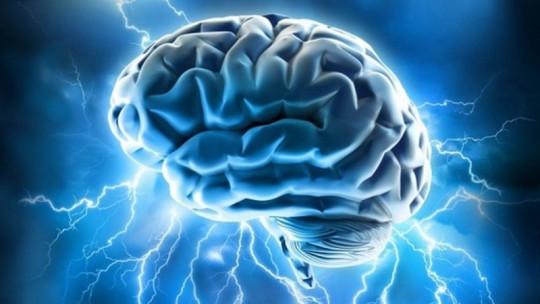What is amnesia and why does it arise? What are the most common types of amnesia? Discover the causes behind amnestic syndrome and what it means to have these memory losses.

Although amnesia is one of the most used themes in both series and movies, the reality is that this condition is rare and often indicates a serious illness. Amnesia happens when a person cannot memorize or remember information, even if they are very important memories or facts.
What is amnesia? Definition
amnesia implies a memory leak. In fact, some people who suffer from amnestic syndrome often have difficulty forming new memories.
One of the best known symptoms of amnesia It is precisely the inability to remember past events or experiences. Despite these ‘failures’ in memory, people usually retain knowledge about their own identity as well as their motor skills. It is important to know the different types of amnesia and its main symptoms to be able to act on the causes before they get worse.
Symptoms of amnesia
To identify amnesia, it is important to know what your symptoms are. We must remember that amnestic syndrome is a rare condition. According to psychologists, the main signs of amnesia are the following.
- Inability to learn new information (occurs in anterograde amnesia)
- Not remembering events and information from the past (retrograde amnesia)
- Having false memories, that is, remembering things that are completely made up or distorting real memories.
- Suffering from uncoordinated movements or tremors (typical of neurological problems).
- Feel confusion or disorientation
- Experiencing short-term memory problems or partial or complete memory loss
- Not recognizing familiar faces or locations
It is important to highlight that amnesia It is a different condition than dementia. Dementia apart from having memory loss, people also suffer from very visible cognitive impairment.

Types of amnesia
There are different types of amnesia Among the most common, psychologists highlight the following.
1. Anterograde amnesia
When a person suffers from anterograde amnesia often unable to remember new information. That is, these types of amnesia imply that people who suffer from it cannot access those things that happened recently. Typically, anterograde amnesia is usually a result of brain trauma.
2. Retrograde amnesia
The retrograde amnesia It can be understood as the opposite of anterograde amnesia, that is, the person who suffers from one of these types of amnesia does not usually remember the events that occurred before a trauma, but they can generate new information. Sometimes retrograde and anterograde amnesia can occur at the same time.
3. Transient global amnesia / Temporary amnesia / Transient amnesia
When a person suffers from temporary amnesia You usually have a temporary loss of all memory, and sometimes even these types of amnesia can cause difficulty forming new memories.
4. Traumatic amnesia
These types of amnesia They are usually the result of a strong blow to the head. In these cases people may experience a loss of consciousness and temporary amnesia.
5. Korsakov syndrome
Wernicke-Korsakoff psychosis, better known as Korsakov syndrome, is due to prolonged alcohol abuse. In these types of amnesia, people suffer from progressive memory loss that can worsen over time.
6. Hysterical amnesia
In these types of amnesia The person not only forgets his past, but also his identity. In this amnestic syndrome, people can even wake up and not know who they are. Typically, this amnesia is triggered by an event that the person cannot cope with. The ability to remember returns over time, but the shocking experience that caused this amnesia may not be remembered.
7. Childhood amnesia
In these cases, the person cannot remember those events that happened during early childhood. This mainly happens because of a problem with language development or because some areas of the brain did not fully mature during childhood.
8. Psychogenic amnesia
In the psychogenic amnesia or dissociative, the person has memory loss due to experiencing very intense psychological stress. Normally in these cases, the memory loss is very superficial or weak.
9. Prosopamnesia
In these cases, people who suffer from prosopamnesia usually do not remember the faces of those they have seen. There are people who can acquire it over time or who are born with these. types of amnesia
If you or someone around you experiences one of these types of amnesia It is important to know the reason behind this condition. In all cases of amnesia, you should immediately go to a doctor or professional psychologist due to the seriousness that this can entail.

Causes of amnesia
There are a series of causes that are usually the most common reason for suffering from any of the types of amnesia that we have described.
- Dementia: One of the main reasons why you can suffer so much from retrograde and anterograde amnesia It is due to generalized brain deterioration. People with dementia usually lose their most recent memories first and then their oldest ones.
- Anoxemia: A depletion in our oxygen levels may be one of the reasons why a temporary amnesia
- Damage to the hippocampus: The hippocampus and memory are closely related. Thus, when a hippocampus is damaged, this is synonymous with difficulties forming new memories.
- Head injuries: Head injuries can also cause a temporary amnesia Typically, these concussions tend to affect more recent memories.
- Alcohol consumption: Alcoholism can cause what is known as Korsakov syndrome, that is, the person can have many difficulties with anterograde and retrograde memory
- Trauma or stress: Traumatic experiences or stress can cause a dissociative amnesia Through this condition, memory in the brain is not formed around those thoughts, feelings or information related to an experience that is too traumatic and difficult to handle.
In all these cases it is essential to go to a medical or mental health specialist to treat amnesia Therefore, if you are facing a case of amnestic syndrome, it is vital that you seek the necessary attention.








